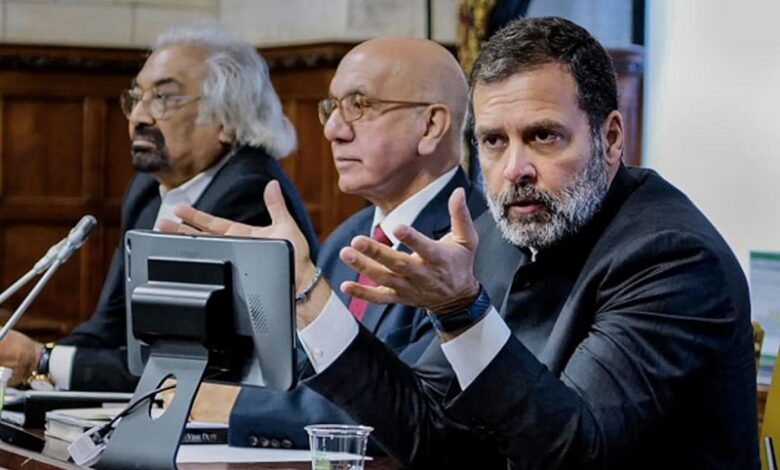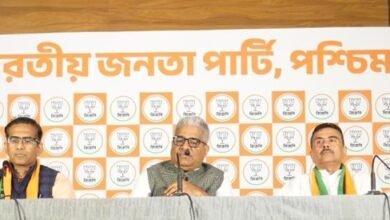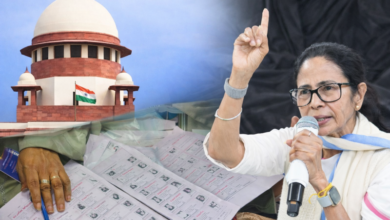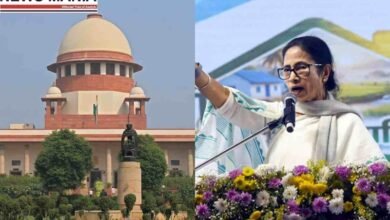Rahul Gandhi’s Concerns Over the State of Indian Democracy Echo in European Quarters

In a significant address during his European tour, Congress leader Rahul Gandhi raised a red flag about what he perceives as a “full-scale assault” on India’s democratic institutions. Speaking in Brussels, he expressed concerns over the state of democracy in India and the reactions he received from European Union (EU) parliamentarians regarding these issues.
Gandhi’s European tour commenced in Belgium and covered a wide range of topics, from the Russia-Ukraine conflict to India’s hosting of the G20 Summit. One notable aspect of his address was his criticism of the government’s failure to invite Congress President MallikarjunKharge to the G20 event, which he saw as a reflection of a concerning mindset.
He highlighted a growing trend of discrimination and violence in India, which he believes is eroding the democratic foundations of the country. This assertion was supported by his conversations with European parliamentarians who shared their apprehensions about the suppression of democratic structures in India.
In response to these concerns, the ruling Bharatiya Janata Party (BJP) had previously labeled Rahul Gandhi as the “present-day Mir Jafar of Indian polity,” accusing him of seeking foreign intervention to further his political ambitions. However, Gandhi reiterated that he had productive discussions with parliamentarians and members of the diaspora as part of his broader initiative to engage with the international community and share the Opposition’s vision.
During these interactions, topics such as the violence in Manipur and the broader challenges facing India, including economic issues and attacks on minority, Dalit, tribal, and lower-caste communities, were discussed. Gandhi emphasized the need to protect democratic institutions and the voices of the people across the country.
Regarding the Russia-Ukraine conflict, Gandhi affirmed that the Opposition largely supports the government’s current position. He emphasized that India, as a large nation, has the right to establish relationships with various countries, including Russia. However, he did not foresee significant differences in the Opposition’s stance on this issue.
Addressing the issue of Kashmir, Gandhi reiterated that it is an integral part of India and rejected any external interference. He emphasized the need to protect democratic structures and the voices of the people in every part of India, including Kashmir.
Turning to the climate crisis, Gandhi highlighted his Bharat JodoYatra, a nearly 4,000-kilometer journey, where he engaged with people who possess a deep understanding of complex environmental issues. He emphasized the importance of including the voices of all stakeholders in decision-making processes, contrasting this approach with the BJP’s stance, which he perceives as neglecting the voices of the people.
On India-China relations, Gandhi reiterated his concerns about China’s “coercive” approach, particularly in the context of the Belt and Road Initiative. He pointed out that China has demonstrated the ability to promote prosperity without political freedom, and he challenged India to provide an alternative vision that emphasizes both political and economic freedom in a democratic environment.
Gandhi’s European tour continued with visits to Paris, the Netherlands, and Norway, where he engaged with parliamentarians and participated in events organized by the Indian Overseas Congress and local diaspora organizations. Throughout his tour, Gandhi aimed to foster open exchanges of ideas and strengthen India’s ties with the international community, all while raising concerns about the state of democracy in his homeland.
News Mania Desk / Agnibeena Ghosh 9th September 2023






